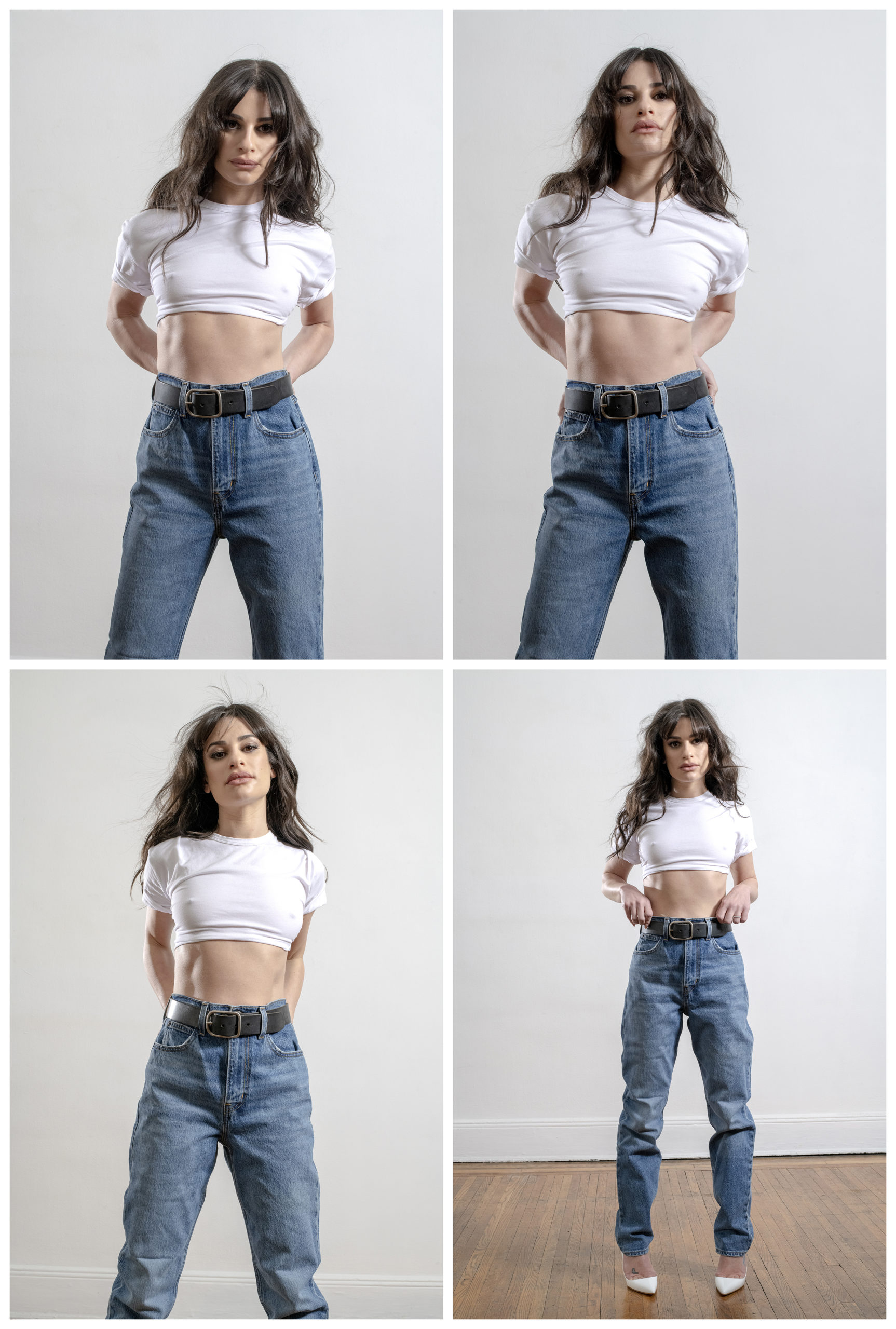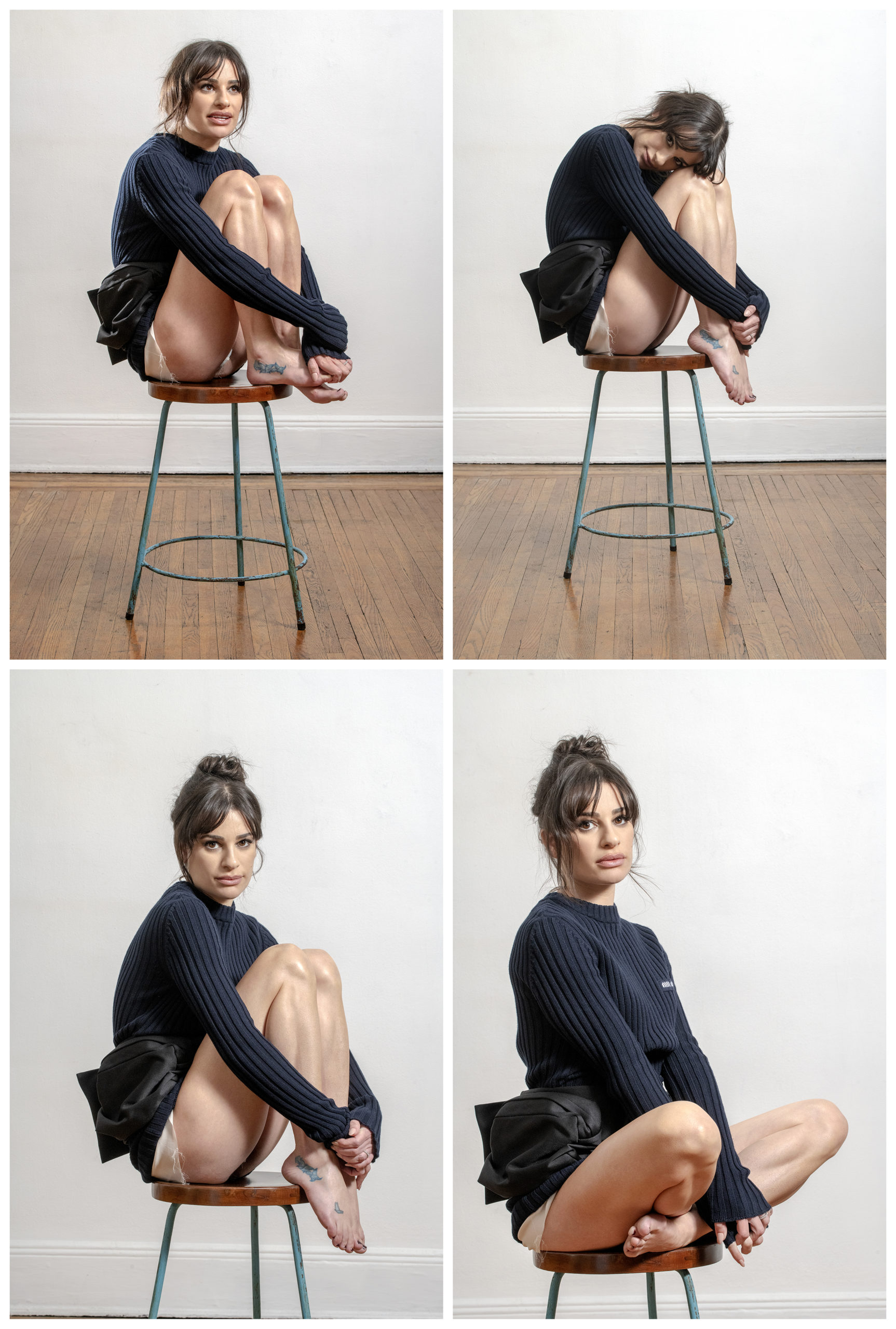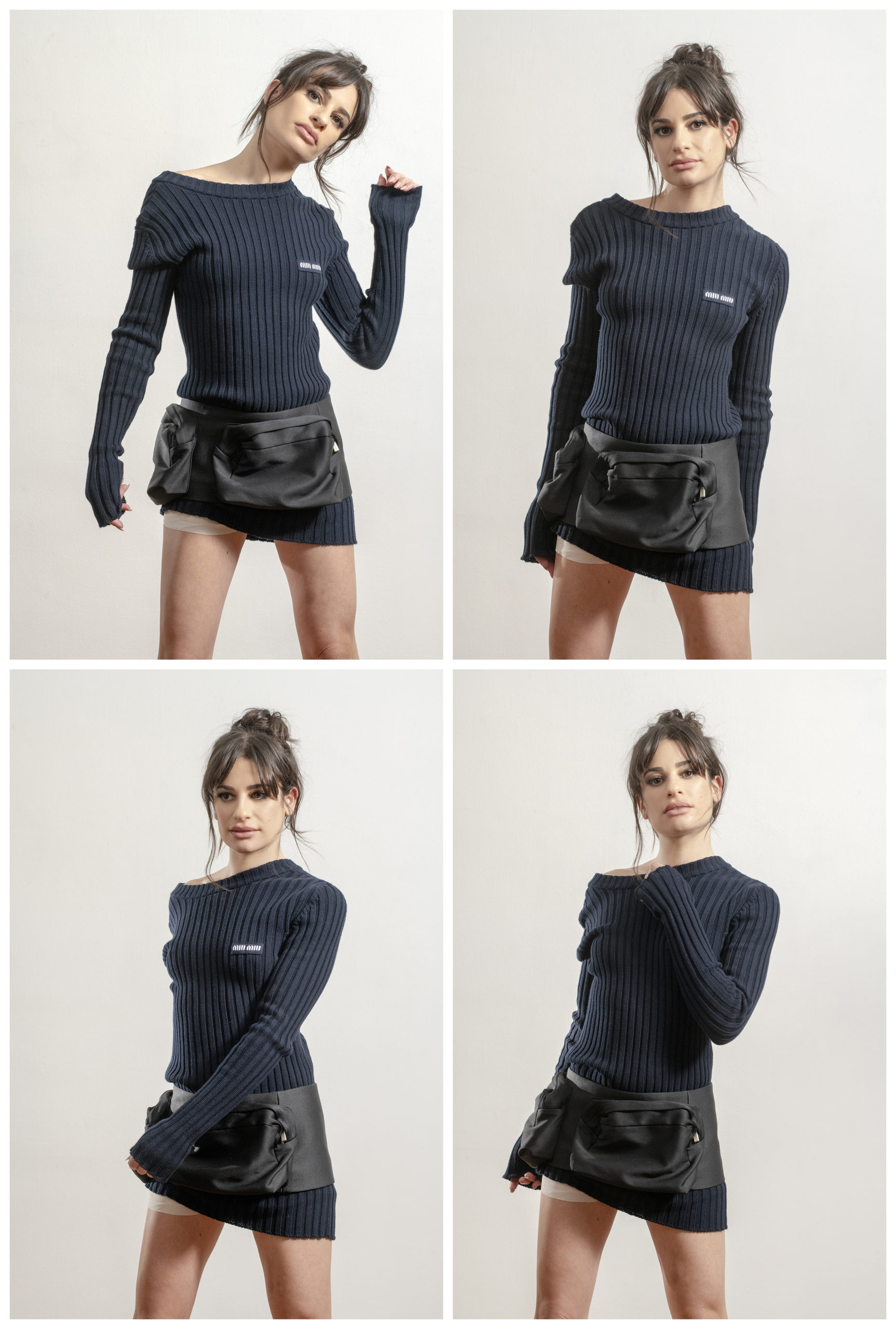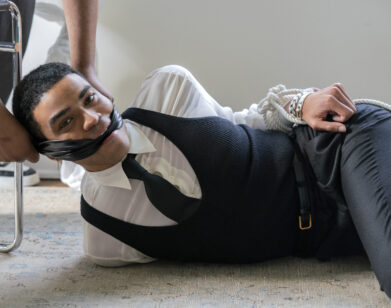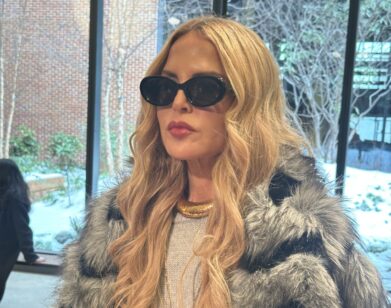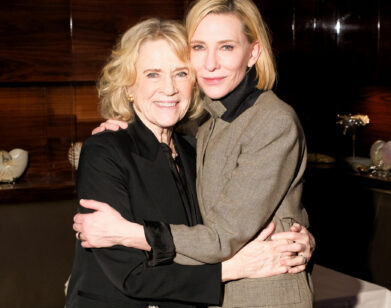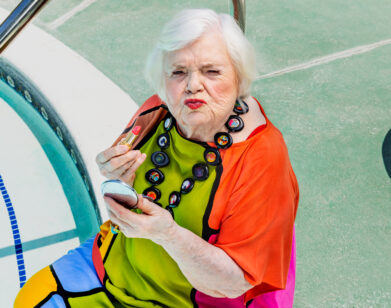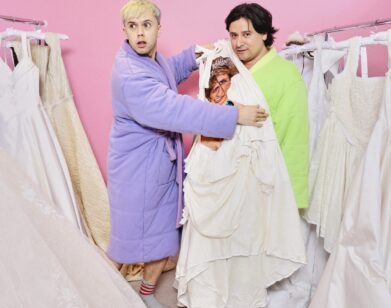BROADWAY
Lea Michele on Glee, Growth, and “the Hardest Fucking Role in New York”
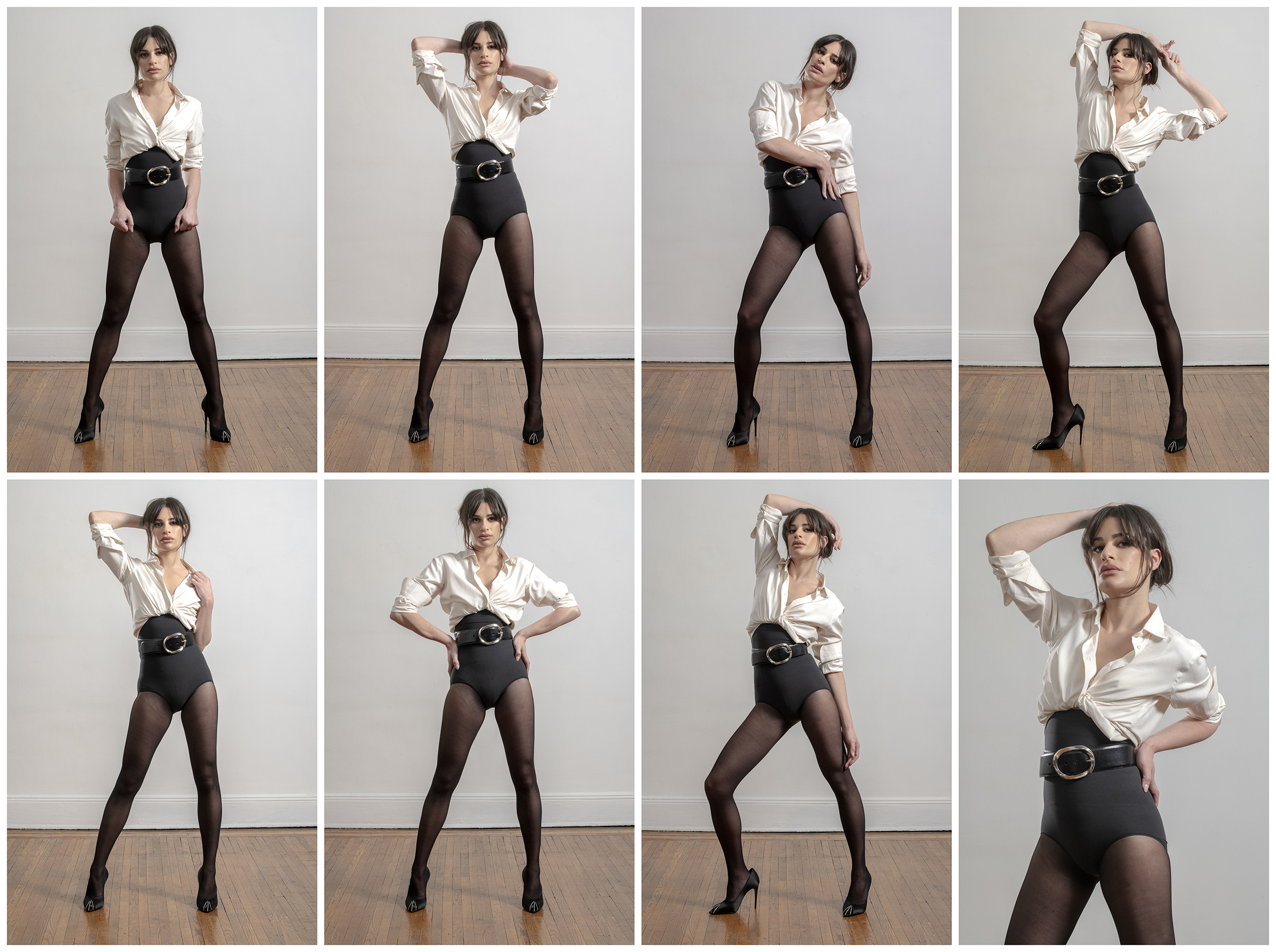
Shirt Loro Piana. Briefs Spanx. Tights Calzedonia. Belt Stylist’s Own. Shoes Saint Laurent by Anthony Vaccarello.
Jeremy O. Harris arrives at New York City’s August Wilson Theater, the site of his Tony-nominated production Slave Play. He’s there to interview Lea Michele, the showstopping star of the newly revived 1964 musical Funny Girl. The only problem: She’s waiting for him on Zoom at an undisclosed location. After they sort out the mix-up, Jeremy spends the next hour wandering the streets of the Theater District talking to Lea about critics, stage fright, and her extremely wild year.
———
LEA MICHELE: Hey!
JEREMY O. HARRIS: Hi! Okay. I literally in my brain had just decided that this was an IRL meeting. So I came all the way here because I’m crazy, and I don’t read emails.
MICHELE: I feel so bad.
HARRIS: Don’t feel bad. I love coming here. I’ve seen the show three times, including Sunday, when you were so wonderfully emotional.
MICHELE: Wait, you were there?
HARRIS: Yes. You were amazing.
MICHELE: I was sick as a dog. I sounded terrible and I cried during “Don’t Rain on My Parade” because I felt so bad. I was also so emotional. I was like, “Oh my god, it’s 2023 and I’m onstage as Fanny Brice.”
HARRIS: I didn’t get “sick as a dog” at all. I came with Lucy Moss, who wrote Six: The Musical, and one of her friends. They were weeping uncontrollably and were like, “This is what a real artist looks like.”
MICHELE: That’s so sweet. I’m sorry it was not my best day. I guess I’m embracing the fact that when I’m doing seven shows a week for as long as I’m going to be doing it, it’s not going to be a ten every day. It might not even be an eight or a nine. There was a little girl in the front row that night and I was like, “That’s why I’m here today. It doesn’t matter how I feel. I have to put my perfectionism aside and just show the fuck up and do the best that I can.”
HARRIS: I have a perfection thing that I’m trying to get rid of for 2023, which might surprise people because I’m so fun and free. But when it comes to my writing, I beat myself up a lot and don’t think that anything is worth being read until I know it’s perfect. What’s your barometer for perfection? Is it in the eyes of others or is it in Lea’s eyes?
MICHELE: It’s in my eyes. I don’t read reviews, but I’ve seen some quotes and I know that people like my take on this. But at the end of the day, it’s me on the stage. I don’t think as actors we should get too attached to the audience’s responses, but this is such an interactive performance.
HARRIS: Yes.
MICHELE: It’s like the audience is a cast member, and so it’s not so much ovation, but if I feel like we are in sync and we are dancing together. It’s like 50 percent me, if I think I’m doing good, and 50 percent this flow with the audience. If I have both then I’m happy.
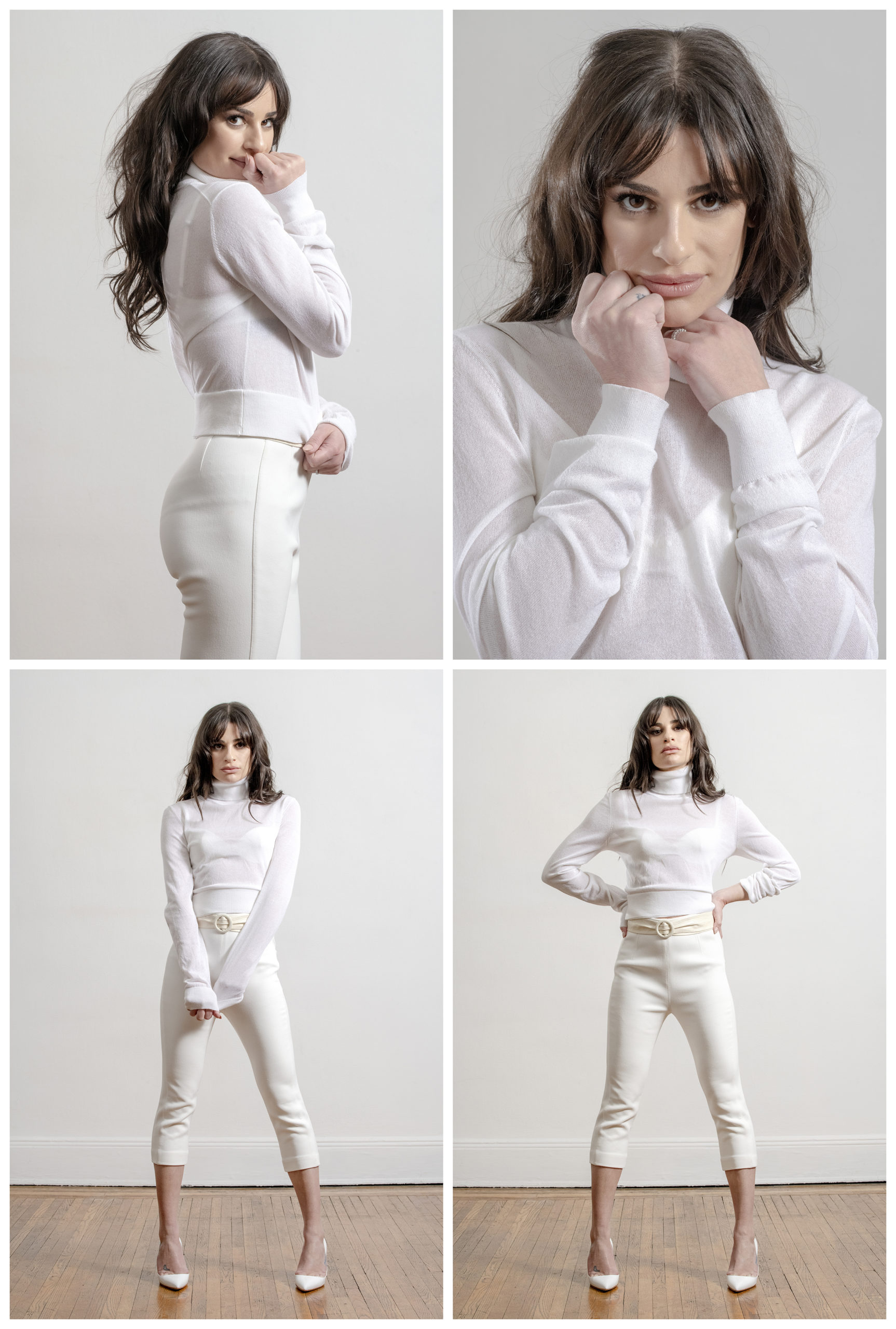
Top Michael Kors Collection. Bra Fleur du Mal. Leggings Tory Burch. Belt Stylist’s Own. Shoes Manolo Blahnik.
HARRIS: My friend was there opening night and he said you got close to six standing ovations. Is that right?
MICHELE: I was blacked out, I don’t remember a lot of that night. All I cared about was the performance. I get terrible stage fright. I didn’t want my anxiety and my fear to take me out of my body. I didn’t want to get too connected to the audience’s hype or lack thereof. I just wanted to be telling the story, a story that I’ve wanted to tell for so long. It wasn’t until after the show Jonathan [Groff] was like, “Do you know what just happened?” And I was like, “No.”
HARRIS: Is Jonathan your main barometer for all of the noise outside of it? You guys are so close.
MICHELE: Yes. I just hung up with him and he told me that you were hanging out until one in the morning the other night.
HARRIS: Yeah. I’m literally in love with him.
MICHELE: Get in line.
HARRIS: My fiancé was like, “I heard you went out with Jonathan Groff last night. Was it everything you dreamed?” And I was like, “Everything and more. You have a lot to worry about.”
MICHELE: He is the best. I think that it can get very noisy in this industry and in life with so many people’s opinions and thoughts. But at the end of the day, if it’s personal or if it’s professional, he is my barometer. I’m an only child and I believe that he is the sibling I never had. I’m really fortunate that he gets me.
HARRIS: Speaking of some of the things that you processed with him—people would be looking at this interview with a lot of side-eye if I didn’t ask you about the things that came up in 2020 vis-a-vis your [Glee] castmates and some of the past relationships you had with people on set.
MICHELE: Yeah.
HARRIS: How have you navigated that? Do you see being in this moment—when you’re looked at as one of the saviors of Broadway—as a chance to rectify some of those things?
MICHELE: I think these past two years have been so important for everybody to just sit back and reflect. I did a lot of personal reach-outs. But the most important thing was for everybody to just take a step back. More than anything, I’m so grateful to have this opportunity to apply the things that I’ve learned over the past ten-plus years in a positive way. What I told myself stepping into Funny Girl was, “If I can’t take my role as a leader offstage as important as my role as a leader onstage, then I shouldn’t do this show.” Because that was always a struggle for me. So to have this opportunity now at 36 years old as a wife and a mother— to step into this job that comes with so much pressure and a huge amount of responsibility—was a very, very big achievement for me.
HARRIS: Totally. I’ve called out so many people in the last couple years, especially because I was in a drama program that had a lot of work to do. And yet one of the things that makes me so frustrated about the moment we are in is that there seems to be very little excitement about growth or the idea that change is possible. You’re saying, “These things happened and I’m now trying to be a different person.” And that’s all we can hope for anyone in one of these situations.
MICHELE: At the end of the day, what matters the most is how you make people feel. And you have to put aside your feelings. The conversations that I’ve had behind the scenes with some people were incredibly healing and very eye-opening for me. I’ve been doing this for a really long time and I’m not going to ever blame anything on the things that I’ve been through in my life. But you also can’t ignore those experiences or deny them. They are a part of the patchwork of my life. When I got the call that I was going to play Fanny Brice, I said, “Okay, this could be really big for my career, but it’s also helpful to have this opportunity to introduce people to who I am now.”
HARRIS: What’s the other call that you could have gotten that would’ve been as monumental as Fanny Brice?
MICHELE: I don’t think that anything is as monumental as this. It was a really interesting process. It literally started in 2014 when I was first asked to do Funny Girl. I didn’t want to do it because I was doing Glee, and we were doing so much of Funny Girl on the show. Then when this Michael Mayer [the director of Funny Girl] version came around and we decided to do another project together I got pregnant. When I finally got the actual call, I said, “This is such a big deal because I’m coming in at such a critical time for this show. Either I’m going to help keep it alive or I’m not.” That means employing people, and that’s a very big responsibility.
HARRIS: I just have to say, as a former resident of the August Wilson Theater, I’m feeling crazy that you just blew another box office record today. I mean, how many more records do you plan on breaking, and will you leave any money for the rest of us on Broadway?
MICHELE: Oh my god, hopefully. I suffer from a lot of anxiety and again, I never want to use what I’m going through as an excuse for anything, but it is part of my journey. I’m very hard on myself. The more these positive things happen, the more nervous I get. It’s nice to take little moments to be like, “You fucking did that.” It’s also nice to let the other ones go and just keep my eyes on the prize. Listen, my alarm clock goes off at 6 a.m., I take my son to school, I spend the day getting my house and life situated for him. I’m a mom all day and then I go to work at night and I do my show. Those are the two things that are the most important to me.
HARRIS: Wow. And why seven shows a week?
MICHELE: Because this is the hardest fucking role in New York. Beanie [Feldstein] did eight. In my contract, they said, “Would you do seven and Julie [Benko] will do one day?” It was such a great decision both for me health-wise and for the longevity of this show.
HARRIS: That’s amazing, and I’m so excited about what you’re going to do next. I have 15 roles in my head for you. But after watching the Spring Awakening documentary and seeing how emotionally attached everyone who worked on that original production was, I have to ask: Is there anything in your head that’s like, “Maybe we should get the band back together and stage the show again?”
MICHELE: We knocked it out of the park with that reunion. We just kept it short and sweet. The real gift was making our documentary and having that be the history book of our show. There’s a world in which I would love to be an executive producer on the movie and help find a great young cast to bring it to life. It’s an odd comparison, but seeing these kids fucking killing it in Matilda the Musical right now, it’s like, that is Spring Awakening. That is the youth popping out of their skin. I would love to be a part of that process and get that film made.
HARRIS: I love that. Is anything else going on for you, mama-wise today?
MICHELE: My son is napping right now, although slightly unsuccessfully. My mom usually comes over when I’m getting ready for the show. Sundays are my favorite because I get to spend a great morning with my husband and our son. We usually go to the park, have a nice breakfast, and then I go to work. As soon as the show’s over on Sunday, I come right home. I’m able to give him a bath, put him to bed, and then my husband and I have dinner together. I haven’t done a show in 15 years. I’m figuring out how to be a good leader. I’m figuring out how to be a good mom. I’m figuring out how to be a good wife, a good daughter, a good friend. I’m getting so much gratification out of my relationships right now because I think everything’s falling so nicely into place and I’m so happy to be back home in New York. I was away from my family in L.A. for 13 years and that was really hard. During 2020, my life got turned upside down in so many ways and I didn’t know where it was going to take me. We moved back home to be closer to family, and I’m so grateful to be doing what I love so much and raising our son here.
HARRIS: It’s such a gift. For the last two years I’ve been traveling so much. And being back in New York, seeing a show almost every night, being a part of the energy of theater again, has really revitalized me. Part of the beauty of working in the theater is knowing that you get to come home to a family who holds you in a certain way and I’m excited to reengage with that.
MICHELE: And for me, having my husband and my son—I never had that to come home to. I think about what the Glee days were like, just working so hard and having such pressure on my shoulders to keep that show afloat, and navigating through that whole experience at such a young age while also dealing with a really intense life trauma that happened at the same time. This is such a different experience. I’m finding so much joy in the connections I’m having with the people around me. That’s what’s giving me energy.
HARRIS: Absolutely. I feel like we have had the best conversation ever, and the 16-year-old theater geek in me is feeling so elated that this is my life now. I don’t know if you know how much “Mama Who Bore Me” meant to a certain type of gay boy in Virginia, but it meant a whole bunch to this one. I just want to thank you for continuing to push yourself, to ask yourself different questions, and for being the Fanny Brice that Broadway didn’t know it deserved. You’re killing it.
MICHELE: Thank you. I really appreciate it. I’m just so grateful to you and I feel like our paths have always crossed. Maybe this means we have to share a meal.
HARRIS: We absolutely have to share a meal. Also, Roxane Gay wants to know when she can come see your play.
MICHELE: I’m going to be in this for a while. There’s time.
———
Hair: Gonn Kinoshita using Kerastase at The Wall Group
Makeup: Jenna Kuchera using Pat McGrath Labs
Photography Assistant: Fletcher Kern
Fashion Assistant: Fern Cerezo

